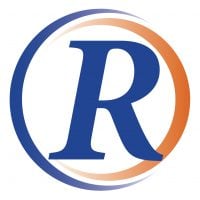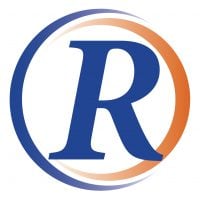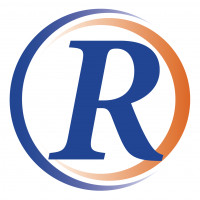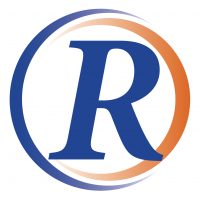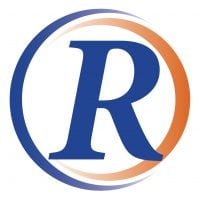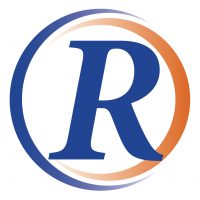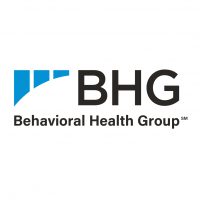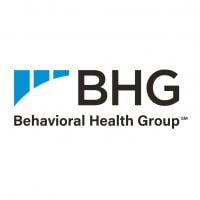Midwest Recovery Centers
Drug Rehab Center in Kansas City, Missouri
Midwest Recovery Centers provides individuals with personalized and evidence-based addiction treatment services, including dual-diagnosis, intensive outpatient, inpatient and outpatient care options, as well as CBT and DBT therapy to help them achieve sobriety and long-term recovery from substance use disorder, all of which are accredited by reputable organizations such as JCAHO, NAATP, State License and LegitScript.
About This Missouri Facility
Midwest Recovery Centers is a comprehensive treatment center located in Kansas City, Missouri that offers a wide range of services to those who are struggling with addiction and substance abuse. They have a highly knowledgeable and experienced staff that is dedicated to providing personalized, compassionate and evidence-based therapeutic treatment. Midwest Recovery Centers offers treatments for a variety of addiction and substance abuse issues, including alcohol, cocaine, heroin, marijuana, opiates, and prescription drugs. onsite assessments are also available.
At Midwest Recovery Centers, they employ an integrated approach to treatment that includes individual and group counseling, cognitive behavioral therapy, relapse prevention, reality therapy, and trauma-informed counseling. They also offer educational programs and support groups, as well as social activities to help clients maintain a sense of normalcy in their lives. In addition, they provide family counseling services to help families understand the effects of addiction and to assist them in the recovery process.
Midwest Recovery Centers is accredited by the Commission on the accreditation of Rehabilitation facilities (CARF), and is licensed by the state of Missouri to provide outpatient substance use disorder treatment services. They have also been recognized for their dedication to helping individuals and families affected by addiction, and have received the 2010 Missouri Governor’s Award for Excellence in Addiction Treatment.
Genders
Ages
Modality
Additional
Accreditations
State License
NAATP

LegitScript

JCAHO
Conditions and Issues Treated
Substance abuse is defined by the continued use of drugs or alcohol despite negative consequences, such as legal or work problems. It can be treated using a variety of services, including therapy and medication.
Substance abuse treatment is beneficial for:
- People who have been using drugs or alcohol for a long time.
- People who have been using drugs or alcohol to cope with stress, anxiety, or depression.
- People who have a mental health disorder in conjunction with substance abuse.
- People who continue to use drugs or alcohol despite the harmful effects they cause on their own life and the lives of others.
- People who have had multiple failed attempts at recovery without medical assistance.
If you believe that addiction treatment is right for you or a loved one, you can contact your primary care physician, or search for addiction treatment centers in your area. Treatment is beneficial to people who are motivated towards recovery, and who understand the benefits of professional care.
Opioid addiction is the result of repeated use, or abuse, of opioid drugs. It is recommended for people who are dependent on opioids, or who have a high risk for dangerous health concerns, to seek professional treatment. Treatment plans usually include behavioral therapy and medication-assisted treatment.
Opioid drugs include: fentanyl, heroin, methadone, oxycodone, and oxymorphone.
Opioid addiction treatment is beneficial for:
- People who have a history of severe withdrawal.
- People with a high risk for dangerous health concerns.
- People having difficulty overcoming opioid addiction on their own.
There are different kinds of Dual Diagnosis:. A person who simultaneously experiences both a mental illness and an addiction disorder. Or, a person who experiences one or more coexisting (simultaneous) mental health conditions in addition to a primary substance use disorder.
The treatment requires a multi-disciplinary approach, it’s crucial for individuals to partner up with a healthcare provider who understands all the recovery components.
Levels of Care Offered at Midwest Recovery Centers
This center offers a variety of custom treatment tailored to individual recovery. Currently available are Aftercare Support, Drug Rehab, Dual-Diagnosis, Inpatient, Intensive Outpatient, Outpatient, with additional therapies available as listed below.
Inpatient treatment is the most intensive level of care, and it’s necessary for those who aren’t able to control their addiction. These patients also must be drug-free before attending inpatient programs .
During inpatient treatment, addicts live at an inpatient facility 24 hours a day while receiving help. This type of program is generally recommended for those who need to go through detoxification or who are struggling with serious addiction-related issues.
An Intensive Outpatient Program (IOP) is a form of drug treatment that allows individuals to receive the therapy they need while remaining in their homes and community.
An IOP is typically 3-5 days per week, at least 4 hours each day of treatment. Treatment can last for a few months or longer, depending on the situation.
An IOP is a step down from an inpatient treatment center and can be used as a step down from an inpatient stay or as a more intense form of outpatient treatment. IOPs allow for the flexibility to continue working and living at home while still meeting treatment demands.
The outpatient programs in Kansas City, MO are for those addicted drugs or alcohol. The goal of the outpatient rehabilitation program is to make them stop abusing drugs or alcohol, reduce drug use or addictive behaviors, and become entirely sober. It is generally required to attend the outpatient program for 10-12 hours every week.
Patients can be administered on-the-spot medication to ease withdrawal symptoms such as anxiety, increased heart rate, and even depression. Groups such as Alcoholics Anonymous (AA) and Narcotics Anonymous (NA) can be used as a part of outpatient treatment to help maintain sobriety.
Aftercare support is a service many addicts need to ensure their success at recovery. This service usually includes one-on-one or group therapies, assistance from a sponsor and other types of help designed to make sure the patient continues living a life free from drugs.
Patients also may require medication to help them battle addiction. Some people have been able to successfully recover without additional medications, but others have found that they need help during their transition. Long-term, the patient must take the initiative to attend meetings and receive help from other addicts in recovery.
Therapies & Programs
People in addiction recovery can benefit from individual therapy. This type of therapy involves meeting with a therapist one-on-one. This allows for a personal and trusting relationship to be built so that the patient can be truly themselves and express any emotions they feel. Individual therapy leads to greater understanding and peace about your triggers for addiction and coping strategies to prevent relapse.
Couples therapy for drug addiction is based on the belief that addiction is a family disease. Everyone involved with an addict, not just the addict themselves, is affected by their behavior and the changes the addict goes through. The relationship also changes the addict’s significant other and has likely picked up some codependent behaviors. Codependency is a term used to describe a person obsessed with another person and their needs and feelings while neglecting their own. Addicts are usually people-pleasers, so it is understandable how one can become codependent in relationships with addicts.
Family therapy is a type of group problem-solving that aims to improve communication and relationships between the patient, their family, and sometimes friends. The main goal of family therapy for drug addiction is to create an environment where communication can occur without judgment, hostility, or blame. The therapist is with the family as they learn to communicate with each other differently, especially with the addict when s/he is using.
Group therapy sessions are held in rehab facilities, clinics, churches or community centers that offer drug addiction treatment. People who attend these groups are encouraged to voice their feelings and support other addicts in recovery. This helps group members strengthen their own recovery program while cheering on others who are struggling with sobriety.
Group therapy sessions provide recovering addicts with a chance to cope with everyday situations that many face. Group therapy sessions are held in rehab facilities, clinics, churches or community centers that offer drug addiction treatment.
People who attend these groups are encouraged to voice their feelings and support other addicts in recovery. This helps group members strengthen their own recovery program while cheering on others who are struggling with sobriety.
If you’re looking for addiction treatment, it’s important to find a facility that offers trauma therapy. This type of therapy helps people process and understand the past traumas that have led to their addiction. Trauma therapists will work with clients to help them understand their past and present relationships and show them that they are worthy of love. This therapy is typically done using visualization, discussion, and writing down thoughts and feelings.
Trauma Therapy is a form of therapy that involves working with a patient to help them process and understand the past trauma(s) in their life. This therapy is typically done using techniques such as visualization, discussion, and writing down thoughts and feelings. The main goals of trauma therapy is to help clients express their emotions and talk about what they are feeling.
Life Skills Services offered at Midwest Recovery Centers assists addicts in their recovery by teaching them healthy coping mechanisms that will aid them in becoming sober, focussing on helping people enter into, and maintaining long-term sobriety. Midwest Recovery Centers provide Life Skills Services at varying levels of intensity, specific to the needs and requirements of each patient.
Benefits of Life Skills Services offered at Drug Treatment Centers in Missouri:
- Restores hope and empowerment — Helps addicts believe that recovery is possible and instills a new confidence in their ability to achieve a positive, drug-free future
- Enhances family involvement — Encourages families to get involved in the recovery process and supports their understanding and encouragement of healthy behavior.
- Increases patient’s compliance — Helps patients take responsibility for and ownership of their recovery and encourages continued progress
- Reduces relapse rates — Encourages long-term abstinence and emphasizes the importance of establishing sober support systems.
Addicts often experience intense cravings for sugary foods during recovery. By teaching addicts how to eat well and stay healthy, therapists can help them manage their cravings over the course of treatment.
During these sessions, Kansas City, Missouri dietitians and therapists will offer advice about healthy eating options and teach addicts how to make specific changes in their diet that can help reduce the effects of cravings during recovery.This type of therapy is often used in conjunction with other types of addiction treatment services. By identifying specific triggers and developing strategies to help addicts avoid relapse, most individuals can overcome their cravings and stay sober for good after they finish rehab.
The first step to becoming a non-smoker is the choice to quit smoking. Nicotine replacement therapies are effective because they provide you with the nicotine you are addicted to without inhaling carcinogens from cigarettes.
There are several types of NRT. These include:
- Nicotine gum
- Nicotine patches (transdermal systems)
- Nasal spray
- Lozenges
The benefits to using NRT can include:
- Reduce the risk of heart disease and cancer
- Reduce the anxiety and irritability associated with quitting smoking
- Reduce the risk of type II diabetes.
- Improved fertility in women
Patient Experience
Creative Arts
Creative Arts Therapy is a treatment method for patients of Midwest Recovery Centers in Kansas City, Missouri who are victims of addiction to drugs, alcohol, or other substances. Group Creative Arts Therapy sessions help addicts get sober by allowing them to meet and talk with peers who are going through the same problems. This builds trust and helps addicts understand that they are not alone. Depending on the severity of the patient’s drug or alcohol problem, they may attend group creative art therapy sessions or individual sessions.Experiential Therapy at Midwest Recovery Centers
Experiential Therapy allows addicts to release emotions in a safe environment. The process involves addicts painting their feelings and releasing them on a canvas. LPE – Love, Peace, and Equilibrium is one of the most popular forms of experiential therapy.
Payment Options Accepted
For specific insurance or payment methods please contact us.
Is your insurance accepted?
Ask an expert, call (888) 674-0062
Midwest Recovery Associated Centers
Discover treatment facilities under the same provider.
Learn More About Midwest Recovery Centers
Additional Details
Specifics, location, and helpful extra information.
Kansas City, Missouri 64145 Phone Number(844) 597-1376 Meta DetailsUpdated November 25, 2023
Staff Verified
Is Midwest Recovery Centers a LegitScript Verified Treatment Facility?
According to our most recent records, we have found this center to be LegitScript verified.
Patient Reviews
There are no reviews yet. Be the first one to write one.
Kansas City, Missouri Addiction Information
Opioid-related overdoses in Missouri have been increasing steadily for the past three decades. In 2018, more than 1,130 people in Missouri died from opioid abuse. Methamphetamines and marijuana abuse have surpassed opioid abuse in Missouri. Missouri is the number 1 methamphetamine manufacturer in the country with more than 27 meth labs per 100,000 people.
In Kansas City, Missouri, in 2016, there were 97 drug overdose deaths. There were 438 drug-related deaths in Kansas City in 2017, and that number is expected to rise in 2018. Drug addiction not only takes a toll on the individual but the entire community. Kansas City, MO, offers various drug treatment options for those looking to get sober. People who require around-the-clock assistance can enroll in these programs.
Treatment in Nearby Cities
- Carthage, MO (119.1 mi.)
- Milan, MO (119.9 mi.)
- O Fallon, MO (209.4 mi.)
- Cape Girardeau, MO (296.7 mi.)
- Camdenton, MO (116.8 mi.)
Centers near Midwest Recovery Centers
The facility name, logo and brand are the property and registered trademarks of Midwest Recovery Centers, and are being used for identification and informational purposes only. Use of these names, logos and brands shall not imply endorsement. RehabNow.org is not affiliated with or sponsored by Midwest Recovery Centers.





